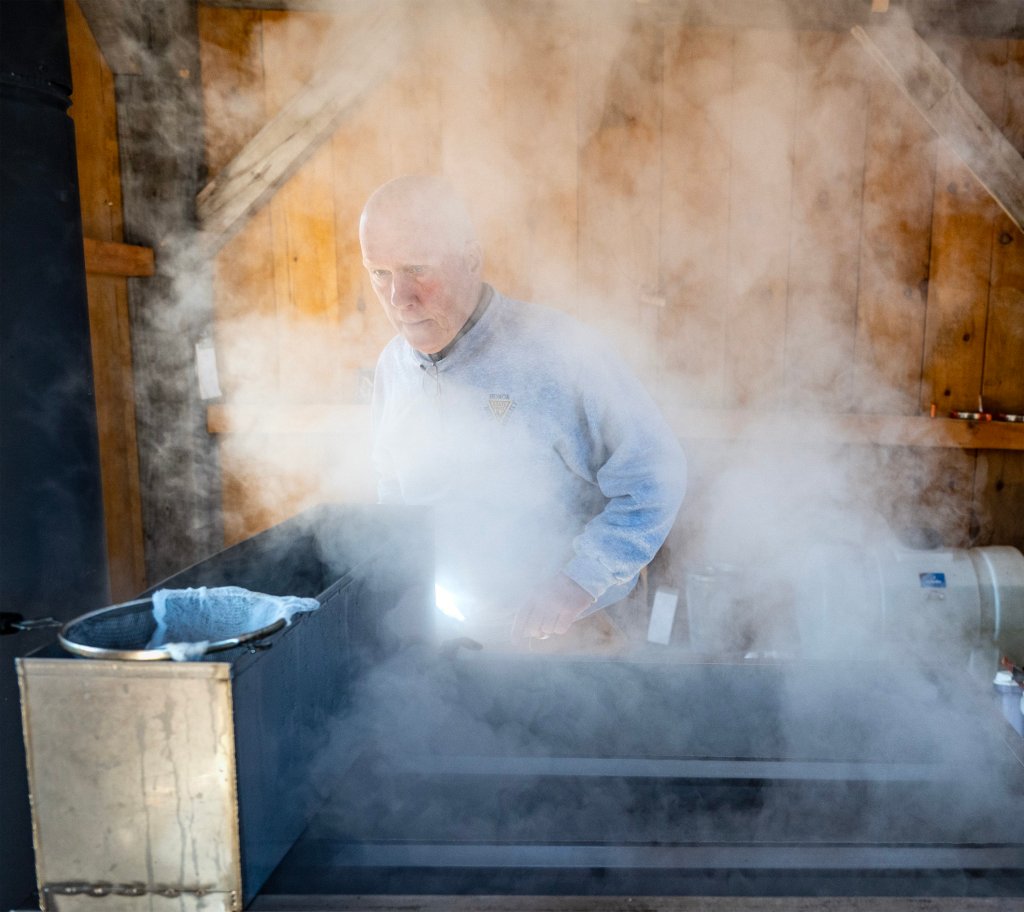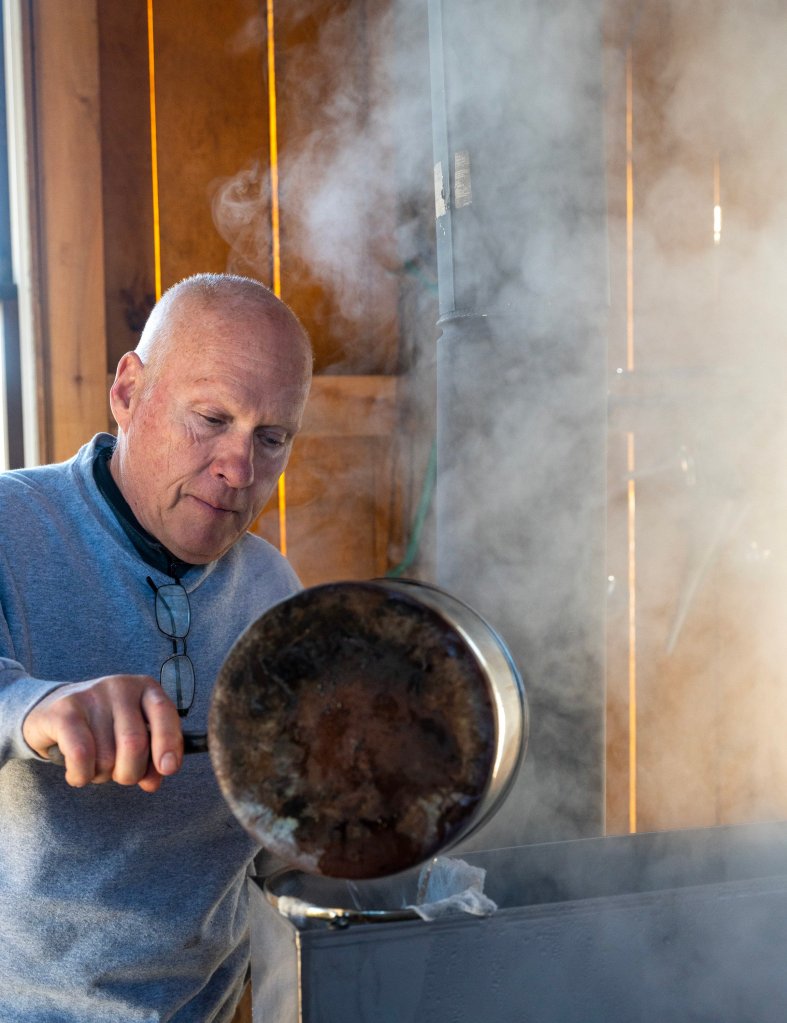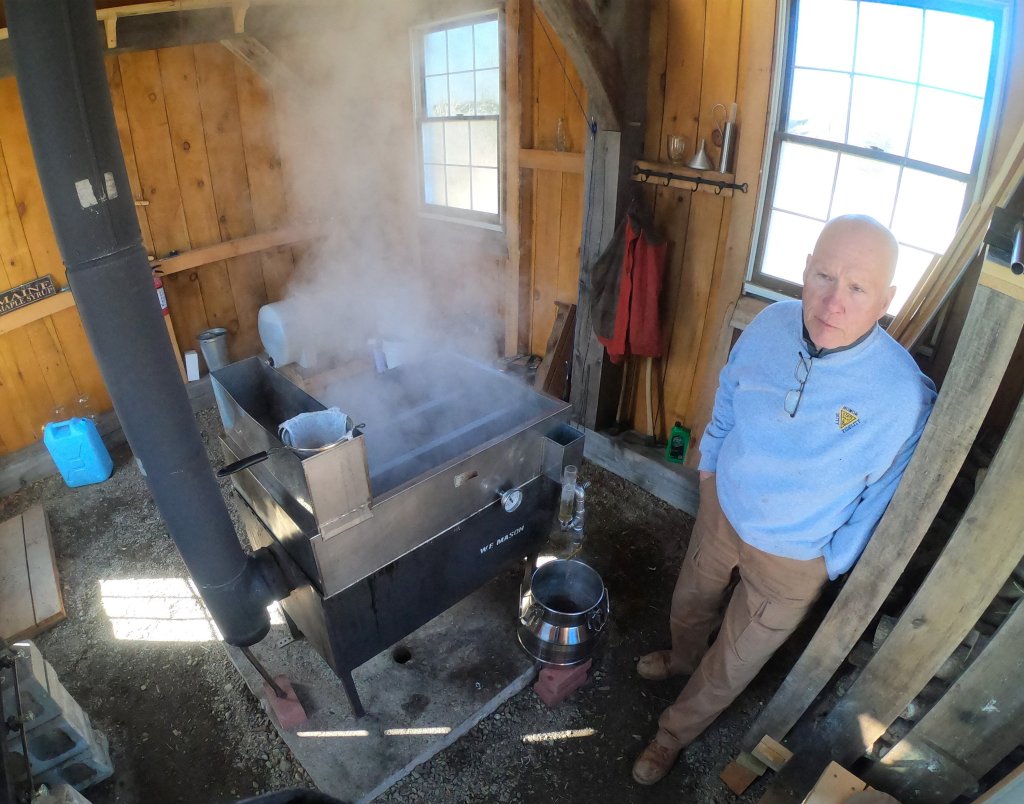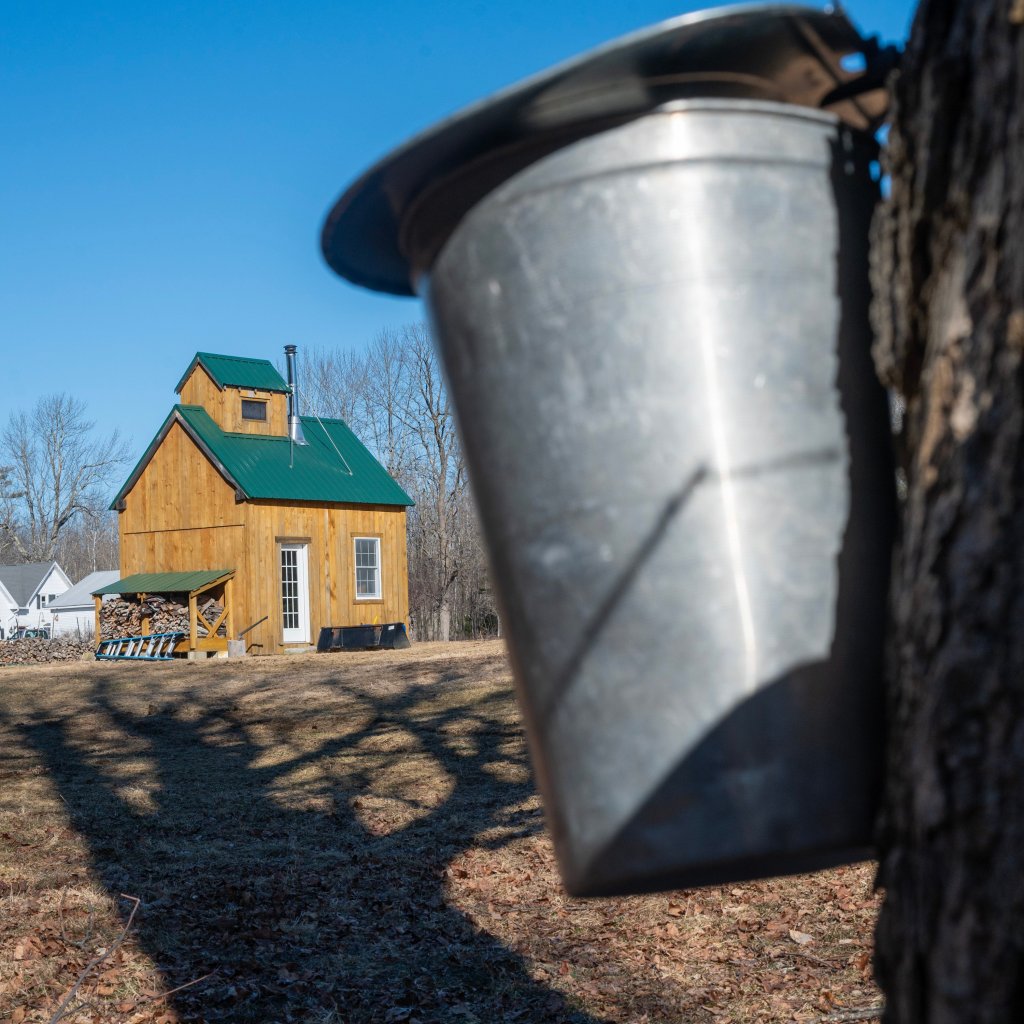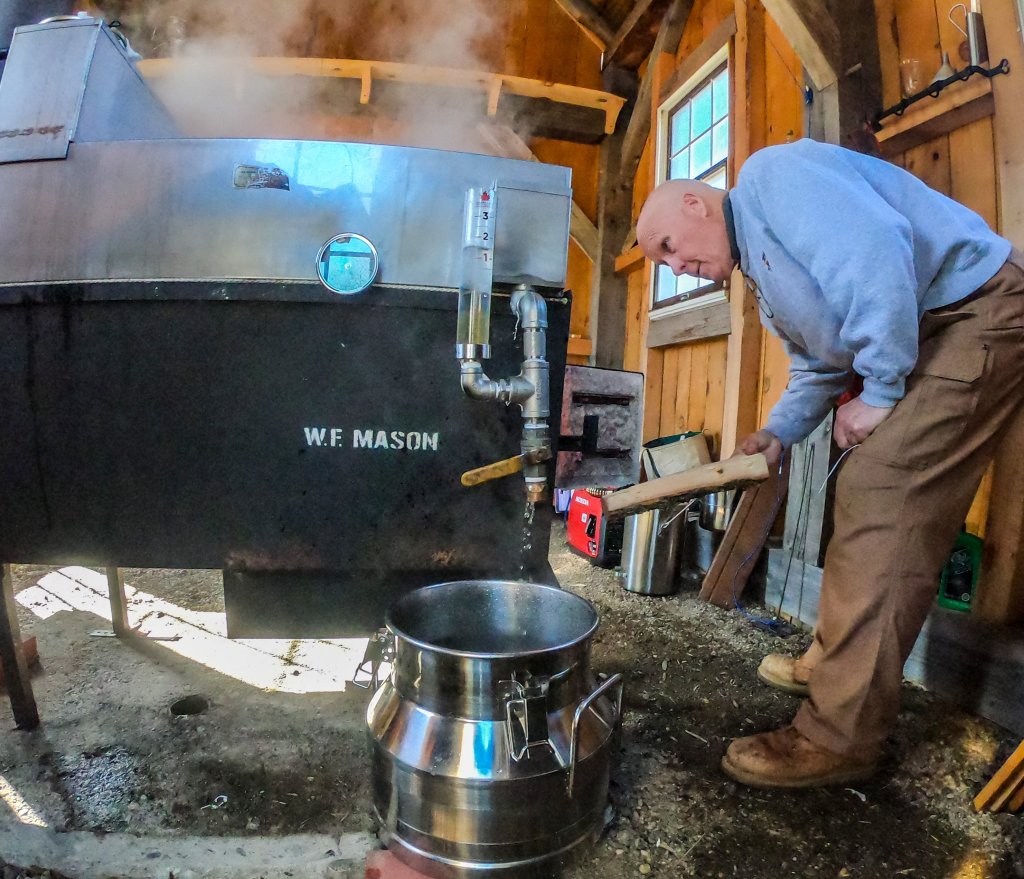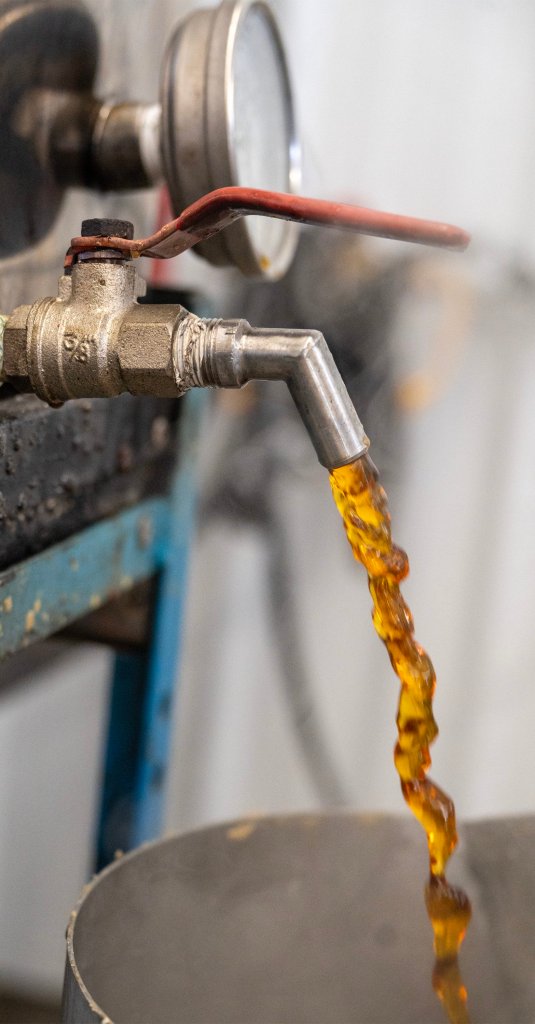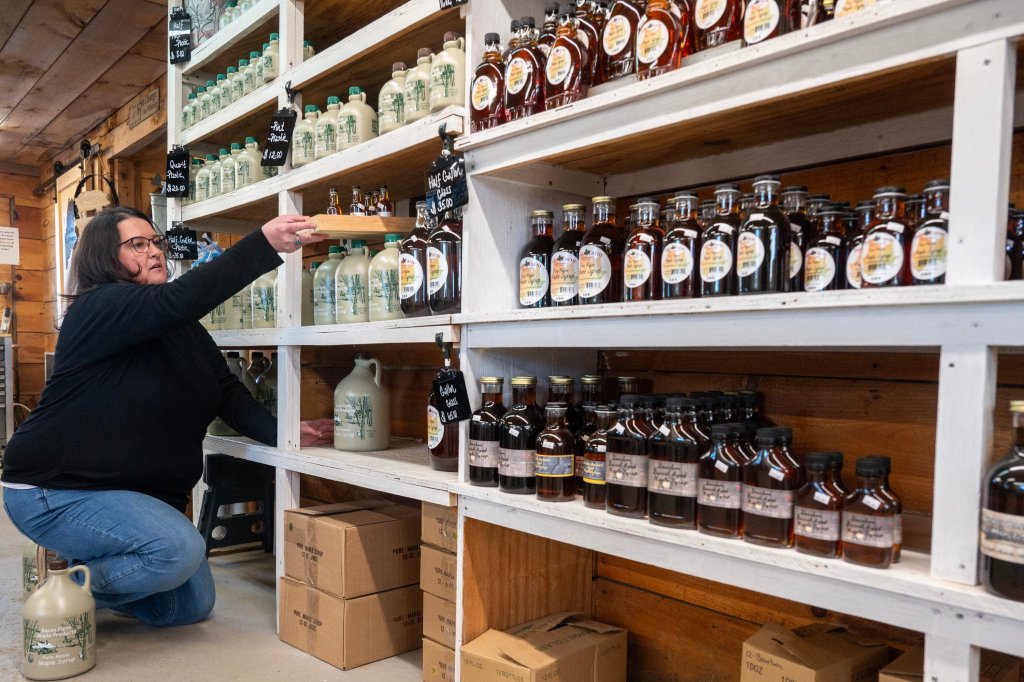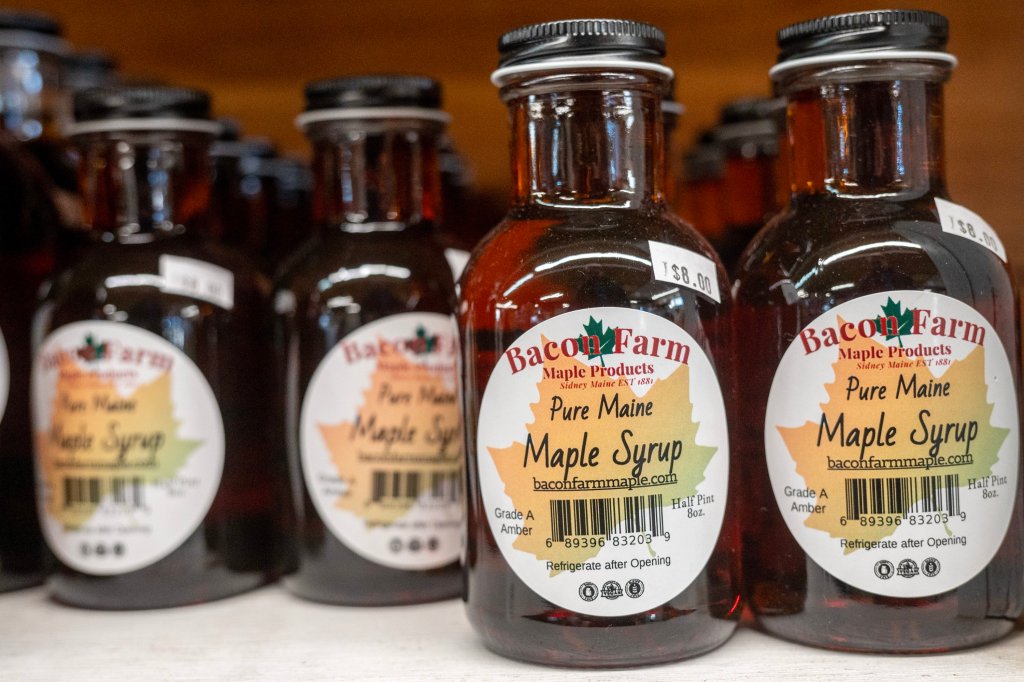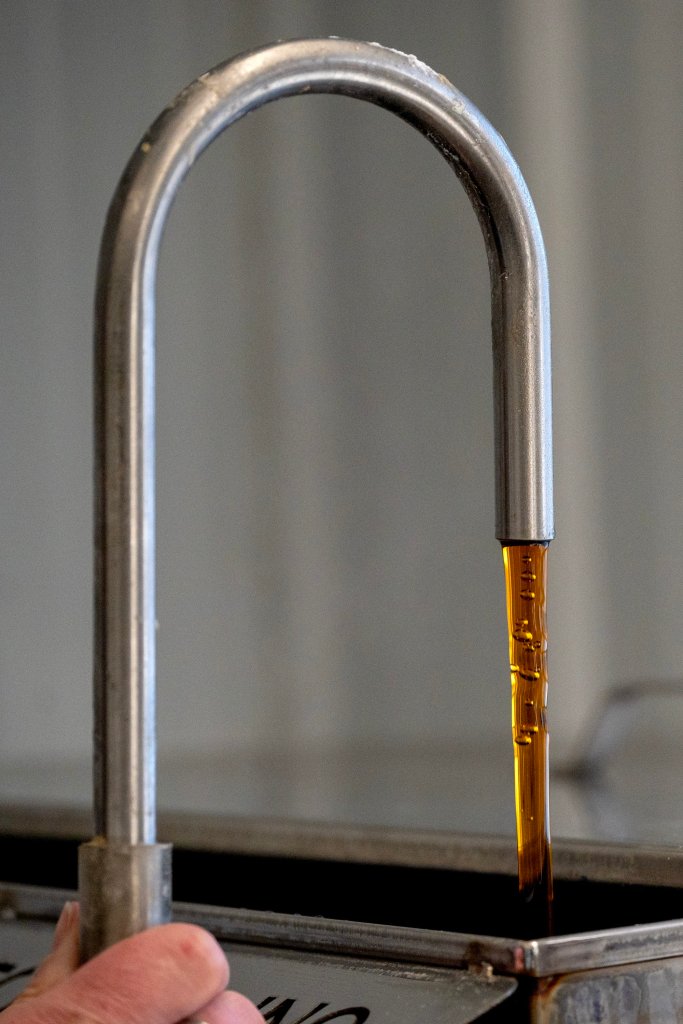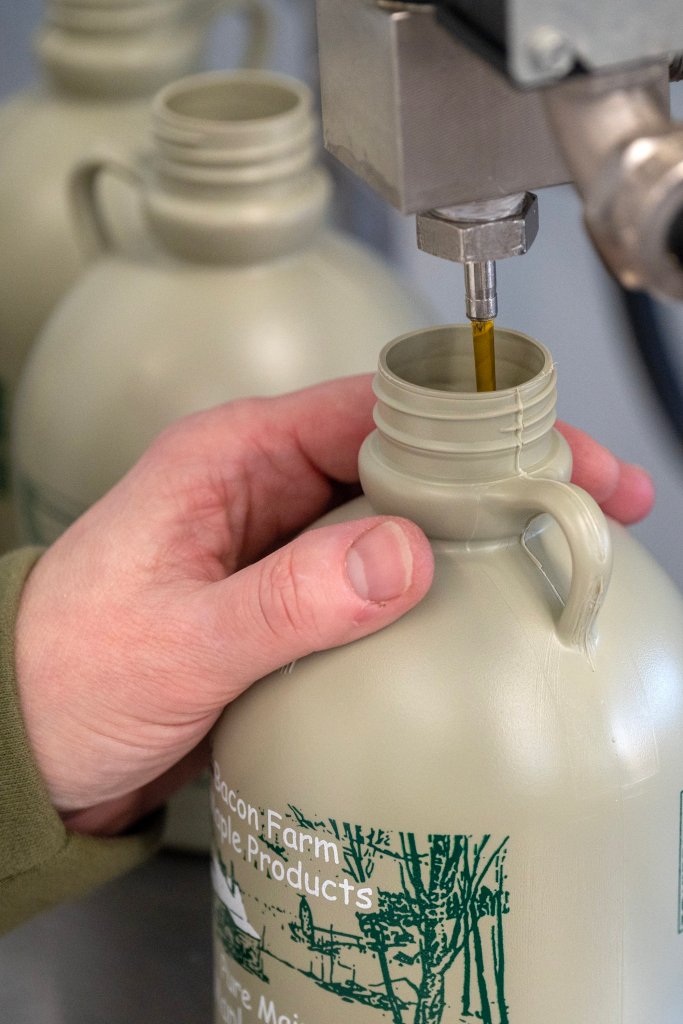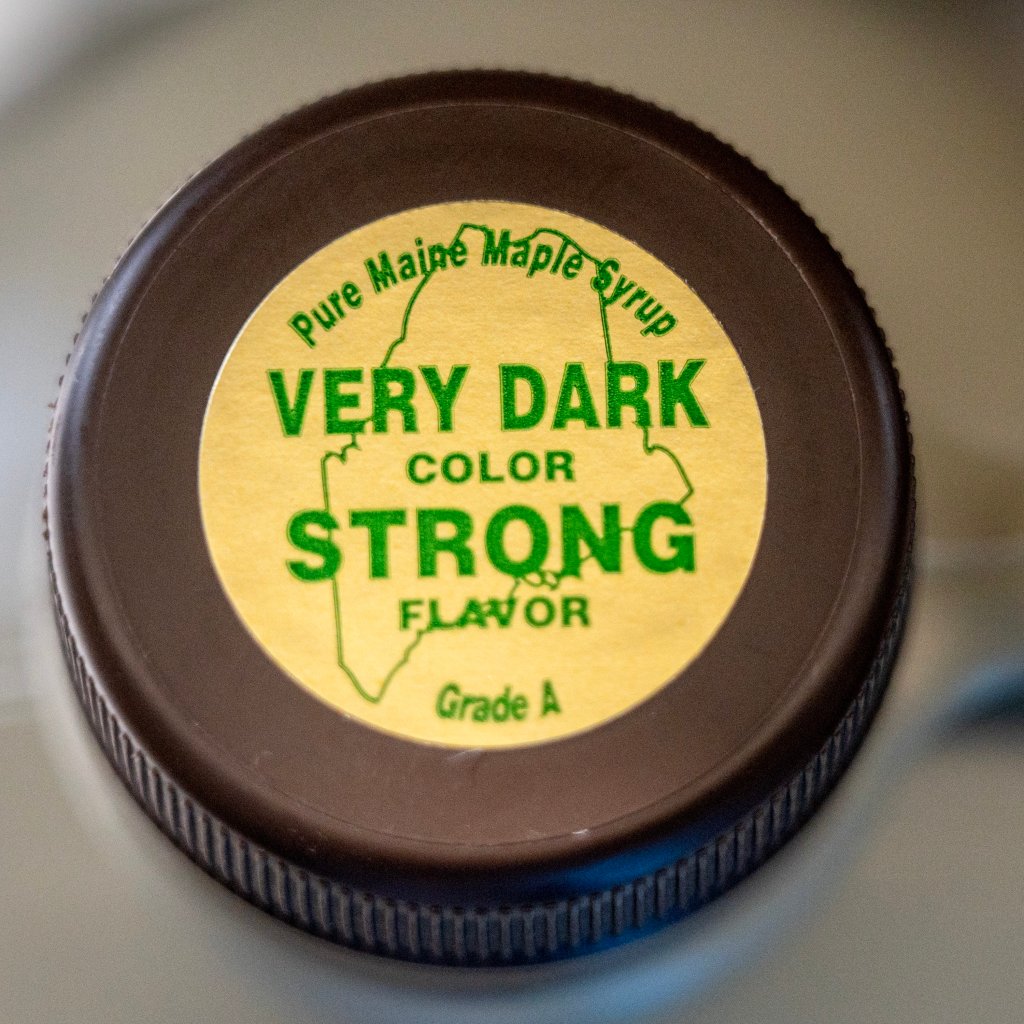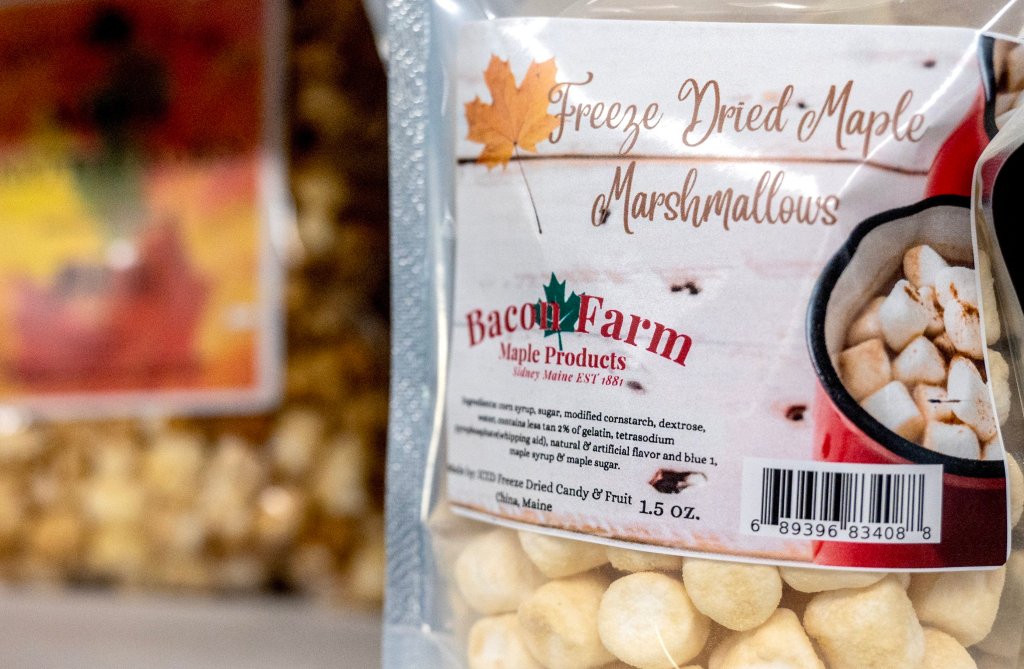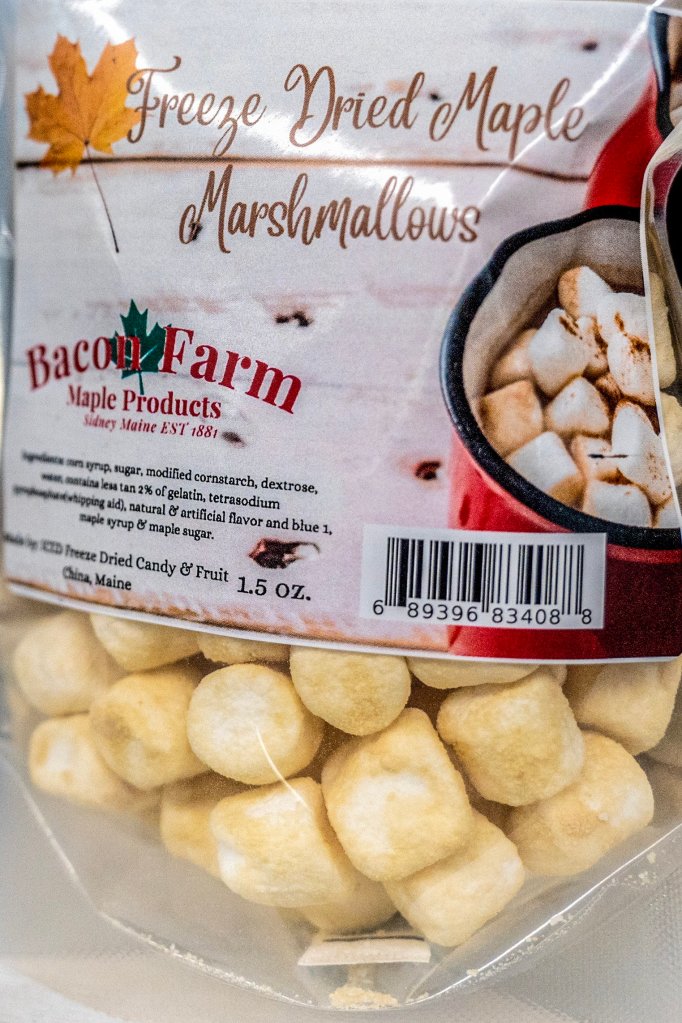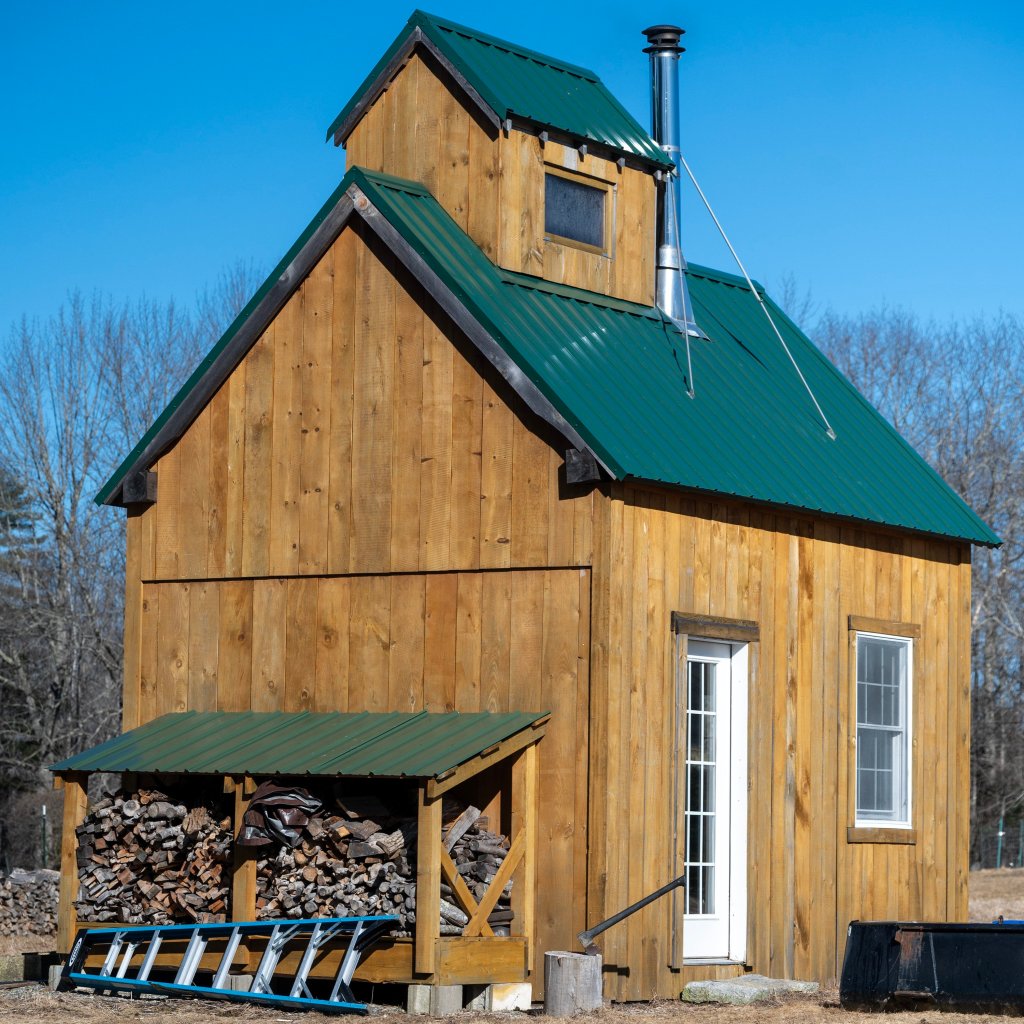SIDNEY — Maine maple syrup producers are saying warm winters, little snowfall and a changing climate are contributing to increasingly intermittent and unpredictable sugaring seasons.
One of the warmest winters in Maine’s recorded history concluded when meteorological winter ended Feb. 29. Temperatures were above average for most of the season, resulting in little snowfall and much rain, National Weather Service forecaster Hunter Tubbs said Saturday.
“It was an unseasonably warm winter, but also unseasonably wet and below average snowfall because it was too warm for a lot of these systems to bring snow to the region.” he said. “In Augusta, it was actually the warmest winter on record, dating back to 1948.”
Maple syrup production is very dependent on temperature. Farmers say daytime temperatures in the 40s and evening temperatures below freezing are ideal, as syrup farmers rely on a daily freeze-thaw cycle to help coax sap out of trees.
That cycle has not been happening this year in much of Maine, according to Alan Greene, vice president of the Maine Maple Producers Association. He said many syrup farmers have had to adjust their operations due to the mild weather and lack of snowfall.
“We’re probably the crop that is most susceptible to Mother Nature,” he said. “There are very few agriculture crops that are so dependent on the weather as maple, for such a short season.”
Syrup season usually lasts just four to six weeks, with harvests historically beginning in mid-March. Greene, who operates the Greene Maple Farm in Sebago, said the season now begins much sooner and stops intermittently because of climate change.

Maple syrup flows in the processing area Friday at Bacon Farm Maple Products in Sidney. After filtering, the dark amber syrup is bottled. Joe Phelan/Kennebec Journal
“We had a brief warm up in mid-February, and we made syrup for four days, then we had a brief warm up the other day and we made syrup for two days, but other than that we’ve been shut down,” he said. “We tapped Feb. 4 this year, which is the earliest we’ve ever tapped. Last year, we tapped Feb. 8, and that was the earliest we’d ever tapped. The year before, we tapped (Feb.) 14, and that was the earliest we’d ever tapped.
“It’s a shift. It lengthens the season. Last year was an eight-week season, so for two months we were boiling.”
In addition to climate change, Tubbs said, the mild winter this year is due in large part to El Niño, a sporadic climate pattern that occurs every few years in the Pacific Ocean, characterized by a warming of the ocean surface, which can have significant effects on weather patterns around the world.
“With El Niño winters we tend to be on the warmer side,” Tubbs said. “Just looking at our observations, we are seeing that temperatures are warming, especially during the wintertime up here, and it’s just not becoming as cold as it has been in the past.”
Frank Zmigrodski is a self-described syrup hobbyist who has about 50 trees tapped at his home in Vassalboro and makes about five gallons of syrup a year for his friends and family. He said Friday that many of Maine’s syrup harvesters are entering “uncharted territory” as the season shifts and producers rethink their methods.
“Ask anyone who’s been paying attention to the weather: The winters are milder and spring comes earlier,” Zmigrodski said. “The maple season will have to adjust accordingly. It’s too early to say if the season (this year) is a great success or a bust, but I don’t like when I see 50-degree days for three or four days in a row.”
While syrup farmers across Maine, including Greene and Zmigrodski, began tapping trees and boiling sap this weekend, the National Weather Service is forecasting above-average temperatures for early March. That warm weather is bad news for syrup farmers, according to Greene.

Shelley Bacon makes room Friday for half-gallon bottles of maple syrup she has just filled at Bacon Farm Maple Products in Sidney. Joe Phelan/Kennebec Journal
“There’s a weather front coming through that looks like it’s going to keep us above freezing for probably five nights in a row,” Greene said. “And when that happens, bad things start happening to the to the tap holes. They start sealing up.”
Though many of Maine’s other industries that rely on cold weather are hurting due to climate change, many maple syrup producers are finding ways to succeed or even thrive. Greene and Zmigrodski said new technology and harvesting practices are helping small- and large-scale syrup farmers adapt to the changing climate.
Many farms have replaced traditional syrup collection buckets nailed to trees with vacuum-powered tubing systems that can collect more sap more efficiently. Bacon Farm Maple Products in Sidney taps thousands of trees using the tube method, according to co-owner Shelley Bacon, which allows her farm to operate effectively and sustainably, even as the seasons fluctuate.
“We’ve brought in half of what we did all of last year, and we’ve only boiled three times, so that tells us we’re actually doing pretty good,” Bacon said Saturday. “We tap 2,000 trees, and it’s on a tubing system, so we run tubing from tree to tree, just like a great spiderweb all over the woods. We run a vacuum system, too, which isn’t strong enough to pull sap out of the tree, but does pull it down to the collection tank.”
Bacon Farm Maple products is in its sixth generation of family ownership and has grown substantially over the years. Shelley Bacon attributes much of the farm’s success and longevity to her family’s ability to evolve its operation over time.
“The maple syrup industry is a time-honored tradition,” she said, “but you kind of have to ebb and flow with where the industry is.”
Greene said the Maine Maple Producers Association has been instrumental in helping small- and large-scale syrup farms to implement new technologies and adapt to climate change. He said the industry will only survive if producers at all levels are willing to change how they do business.
“We’re an eight-generation farm. I grew up in this,” Greene said. “We’ve gone from buckets when I was a little kid to being one of the first to have tubing systems in this area, and now we’ve gone to a vacuum tubing system.
“It’s profound how quickly this industry has changed and how it continues to adjust. It’s like with everything: You’ve got to evolve or you’ll be left behind.”
Comments are not available on this story.
Send questions/comments to the editors.


